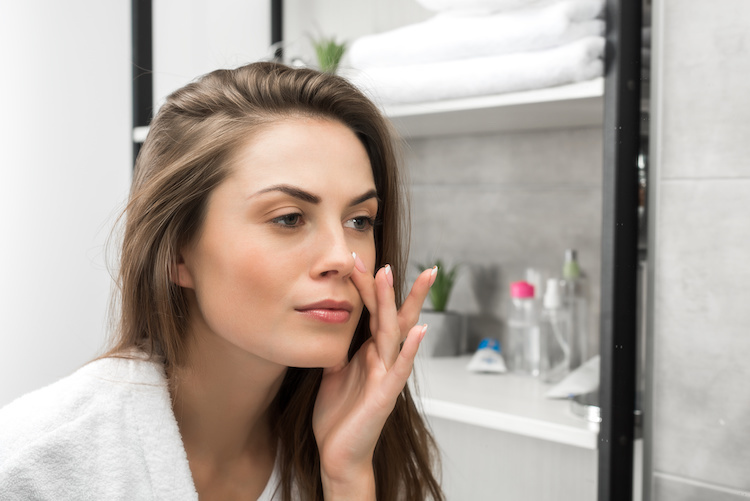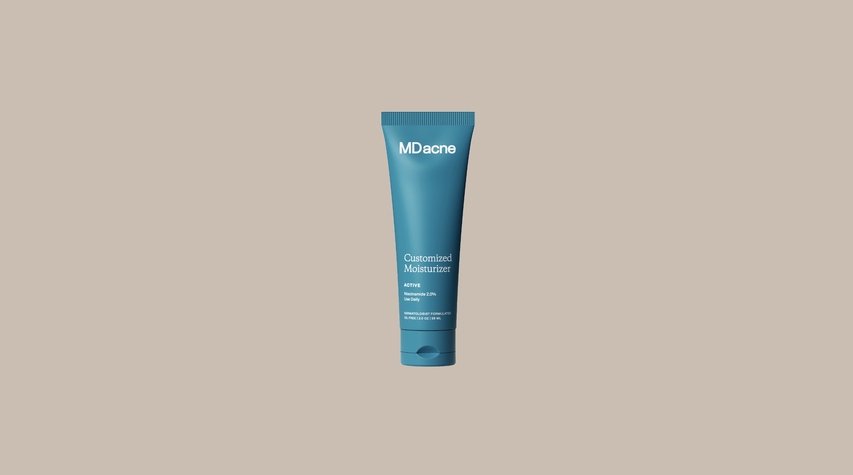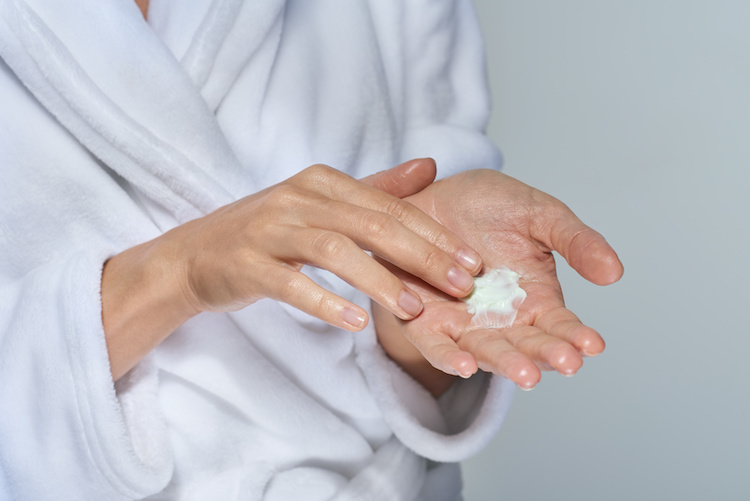Best oil-free moisturizer for acne-prone skin

Whether you have dry, oily, or combination skin, finding the perfect moisturizer is crucial for achieving clear, healthy, and glowing skin. With so many options available—ranging from heavy creams to lightweight gels—it can feel overwhelming to figure out what works best for your unique skin.
For people with acne-prone skin, the wrong moisturizer can not only exacerbate breakouts but may even be the root cause of the problem. To simplify things, Dermatologist Dr. Yoram Harth recommends sticking to oil-free moisturizers to hydrate and protect your skin without clogging pores.
Read on to learn why oil-free moisturizers are so important and which ingredients make them ideal for acne-prone skin.
Does Everyone Need a Moisturizer?
Yes! Dermatologists agree that moisturizer is an essential part of any skincare routine, no matter your skin type:
- Dry Skin: Locks in hydration and prevents flakiness.
- Oily Skin: Helps balance oil production and prevents clogged pores.
- Combination Skin: Maintains equilibrium between dry and oily areas.
- Normal Skin: Keeps your skin’s barrier healthy and glowing.
Four Key Benefits of Moisturizers
- Prevents Skin Dryness: Retains water in the skin and protects against environmental factors like pollution and extreme weather.
- Reduces Acne Risk: Dryness can lead to overproduction of oil, clogging pores and triggering breakouts. Moisturizers keep the skin balanced.
- Protects the Skin Barrier: Prevents cracks that let bacteria and toxins penetrate the skin, causing irritation and inflammation.
- Minimizes Wrinkles: Keeps the skin plump and smooth, reducing the appearance of fine lines.

What Makes a Good Moisturizer?
A good moisturizer should contain a blend of humectants, emollients, and occlusives:
- Humectants: Draw water from the air or deeper layers of the skin to hydrate.
- Examples: Glycerin, hyaluronic acid, panthenol.
- Emollients: Smooth and fill gaps between skin cells, preventing water loss.
- Examples: Dimethicone, jojoba oil, and isopropyl myristate.
- Occlusives: Form a protective layer on the skin’s surface to lock in moisture.
- Examples: Petrolatum, beeswax, squalene.
Why Choose Oil-Free Moisturizers?
Most oils—even those labeled “non-comedogenic”—can clog pores and worsen acne for people with acne-prone skin. That’s why oil-free moisturizers are ideal.
What Does Oil-Free Mean?
Oil-free products don’t contain oils, butters, or waxes that could clog pores. Always check labels for hidden ingredients and stick to products explicitly labeled “oil-free” and “non-comedogenic.”
Then Who Should Use Oil-Based Moisturizers?
Oil-based moisturizers are suitable for people with dry, aging, or eczema-prone skin that isn’t acne-prone. These products often contain ingredients like petroleum, lanolin, or mineral oil, which effectively seal in moisture.

How Do Oil-Free Moisturizers Work?
Oil-free moisturizers rely on alternative hydrating ingredients to mimic the benefits of oil without clogging pores.
- Humectants (e.g., glycerin, hyaluronic acid): Pull in moisture.
- Emollients (e.g., dimethicone): Smooth the skin and seal in hydration.
- Plant-Based Extracts (e.g., aloe vera, witch hazel): Calm and soothe inflammation.
Best Ingredients in Oil-Free Moisturizers
- Dimethicone: A lightweight silicone that seals in moisture without leaving a greasy feel.
- Hyaluronic Acid: A humectant that attracts and retains water.
- Niacinamide: Balances oil production, reduces redness, and strengthens the skin barrier.
- Aloe Vera: Calms irritation and soothes the skin.
Niacinamide: The Secret Weapon in Skincare
Niacinamide is one of the best ingredients for acne-prone and sensitive skin. It:
- Tightens and minimizes pores.
- Balances oil production.
- Reduces redness and uneven skin tone.
- Strengthens the skin barrier.
- Smooth's fine lines and wrinkles.
What Is the Best Oil-Free Moisturizer for Acne-Prone Skin?
A good oil-free moisturizer should hydrate your skin, repair its barrier, and prevent further breakouts. Look for products with the ingredients listed above, as well as antioxidants to neutralize free radicals and fade post-acne dark spots.
Our Picks:
The MDacne Soothing Moisturizer combines dimethicone, hyaluronic acid, and botanical extracts like aloe vera, green tea, and licorice root. It’s designed to work with acne treatments for lightweight yet effective hydration.
The MDacne Niacinamide 2% Active Moisturizer hydrates while protecting the skin's barrier, reducing redness and fading post-acne marks. It minimizes enlarged pores, balances oil production, and brightens uneven skin tone. Applied around the eyes, it also helps reduce dark circles and crow's feet. Suitable for all skin types, including sensitive or rosacea-prone skin, it delivers smoother, healthier, and more radiant skin.
Can Oil-Free Sunscreen Replace Moisturizer?
Absolutely! In summer, you can simplify your skincare routine by using an oil-free sunscreen that also hydrates. Look for a broad-spectrum SPF 30 sunscreen with moisturizing properties for all-day protection and hydration.
Are you curious about how to find the right products for your unique skin? Click here to take the free MDacne skin analysis, and you'll get your first fully customized acne treatment kit for free (just pay for shipping)!
To find the right acne treatments for your unique skin, take the free skin assessment by clicking here.



